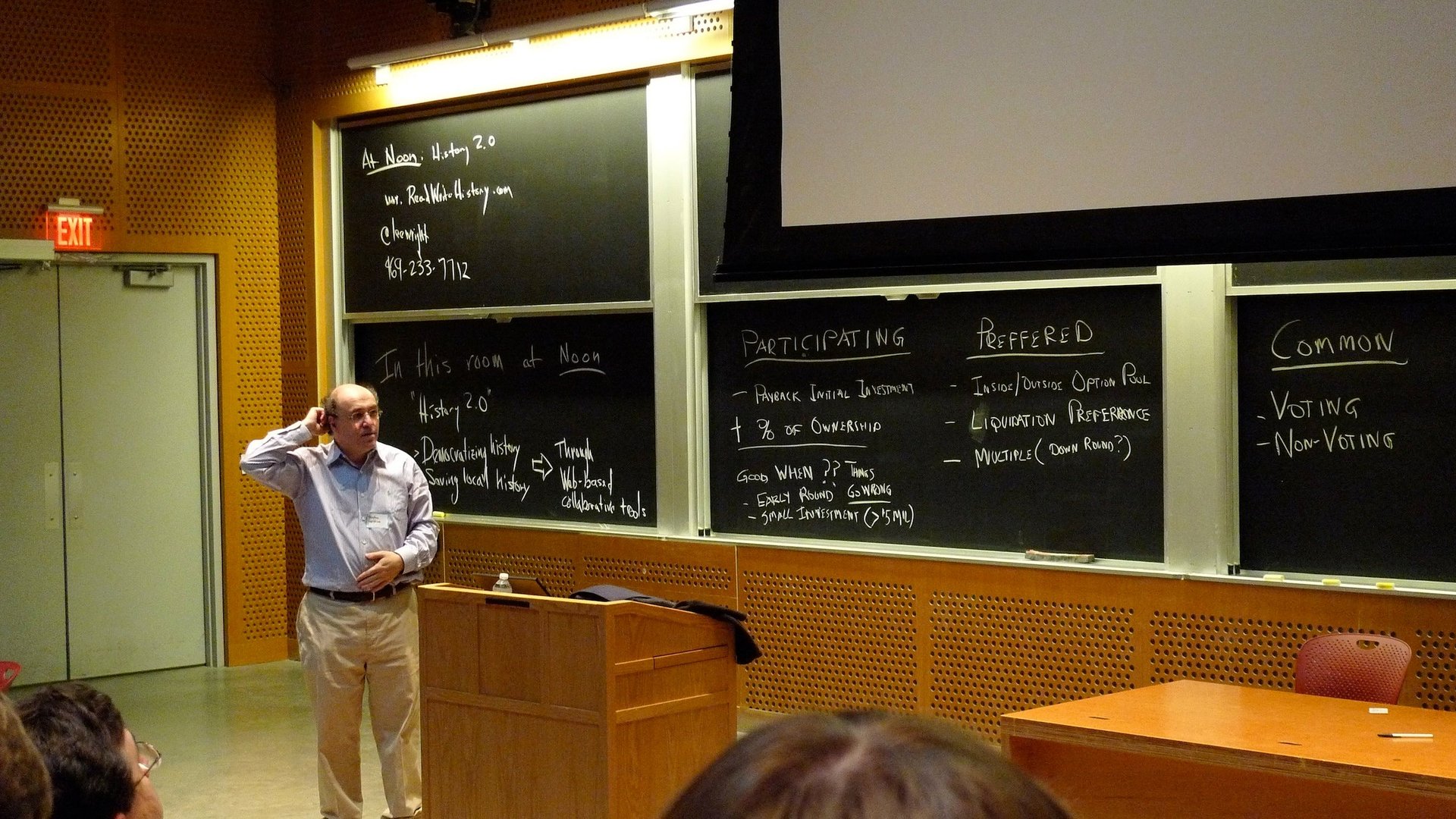Stephen Wolfram, who never finished high school, has some great advice for those who just did
Stephen Wolfram attended his first-ever high school graduation this week—he never formally finished high school before he got his Ph.D in particle physics at Cal Tech by age 20, and won a MacArthur Genius Grant at age 21. He went on to create Mathematica, an extremely successful computation engine, and the natural language search tool Wolfram Alpha.


Stephen Wolfram attended his first-ever high school graduation this week—he never formally finished high school before he got his Ph.D in particle physics at Cal Tech by age 20, and won a MacArthur Genius Grant at age 21. He went on to create Mathematica, an extremely successful computation engine, and the natural language search tool Wolfram Alpha.
So in a speech to graduates of the Stanford Online High School in California, a Stanford University-based digital school one of his children has been attending, Wolfram gave some advice on how successful people think. Instead of the standard advice about how to get through college and plot out a career path, Wolfram shared some strategies for finding the sorts of projects worth devoting a career and life to.
The trick is understanding that those projects don’t always exist, he explained. Sometimes, you have to create them.
Find the right problem
Wolfram always had trouble getting through assigned exercises in textbooks, he told students, because he was aware that others gone through the same processes before. Instead, he focused on coming up with something new. The key is actively thinking more broadly ”how” something can be done, he said, instead of just addressing the technical side: “One thing I’ve noticed is that in almost every area, the people who go furthest are not the ones with the best technical skills, but the ones who have the best strategy for figuring out what to do.”
This is an approach students can already start applying he said. ”People might think: that must be really hard,” Wolfram said. “But it’s not. It’s just that you have to learn not just about how to do stuff, but also about how to figure out what stuff to do.”
Find your obsession
“Maybe you like math,” Wolfram said. “But why? Is it the definiteness? Problem solving? Elegance? Even at OHS you only get to learn about certain specific subjects. So to understand yourself, you have to take your reactions to them, and generalize—figure out the overall theme.”
The key, he says, is to internalize a particular way of thinking, and be able to apply it in new and interesting ways. That’s the point of learning.
As a child, Wolfram recalled, he loved physics, but hated doing math and wasn’t much good at it. Eventually, he figured out that he could make computers do the math. That narrow obsession, thinking from that perspective, and building tools to enable it, made Wolfram extremely successful.
Learn tools instead of content
“To be able to do all this stuff, you have to get familiar with the computational way of thinking, and with things like programming,” Wolfram said. “That’s going to be an increasingly important literacy skill. And I have to say that in general, even more valuable than learning the content of specific fields is to learn general approaches and tools—and keep up-to-date with them.”
It’s that mindset, Wolfram said, that lets you keep an eye out for something new that you can start from the ground up, and grow personally as the field does. “It’s worth remembering that some of the very best areas are ones that almost nobody’s heard about yet—and there certainly aren’t classes about,” Wolfram said.
“Don’t just learn stuff,” Wolfram added. “Keep thinking about strategy too. Keep trying to solve the puzzle of what your best niche is. You might find it or you might have to create it. But there will be something great out there for you. And never assume that the world won’t let you get to it. It’s all part of the puzzle to solve.”